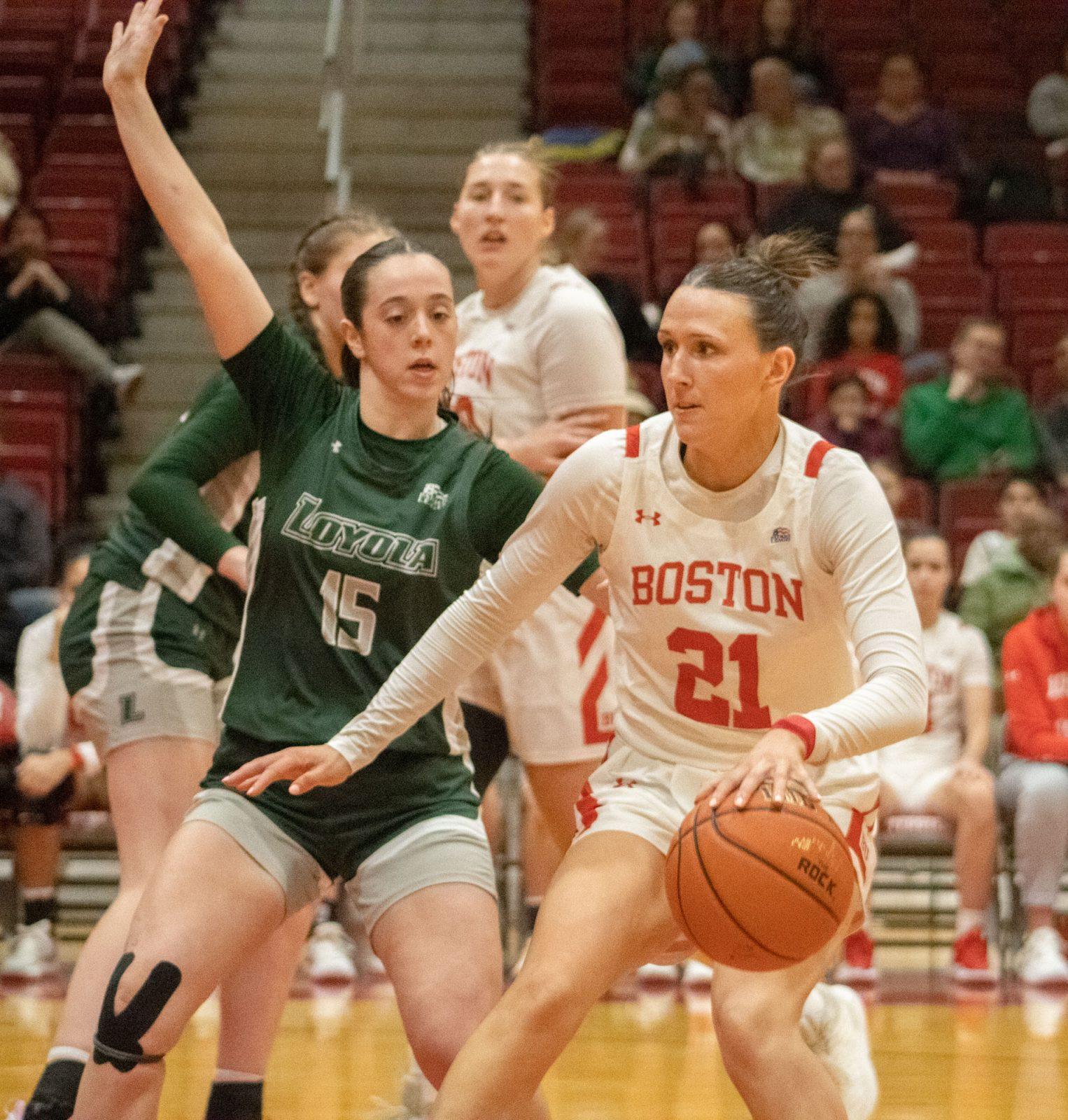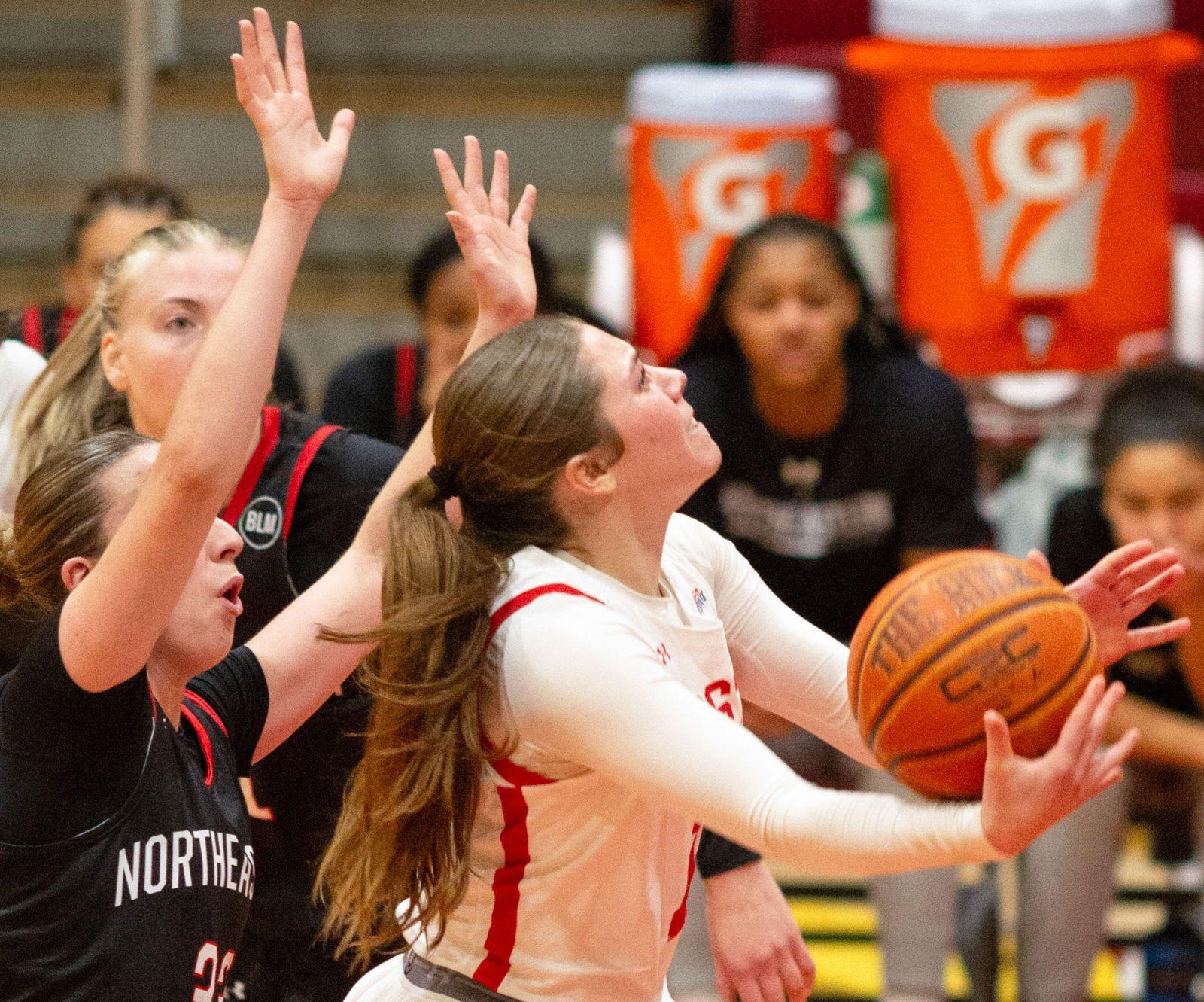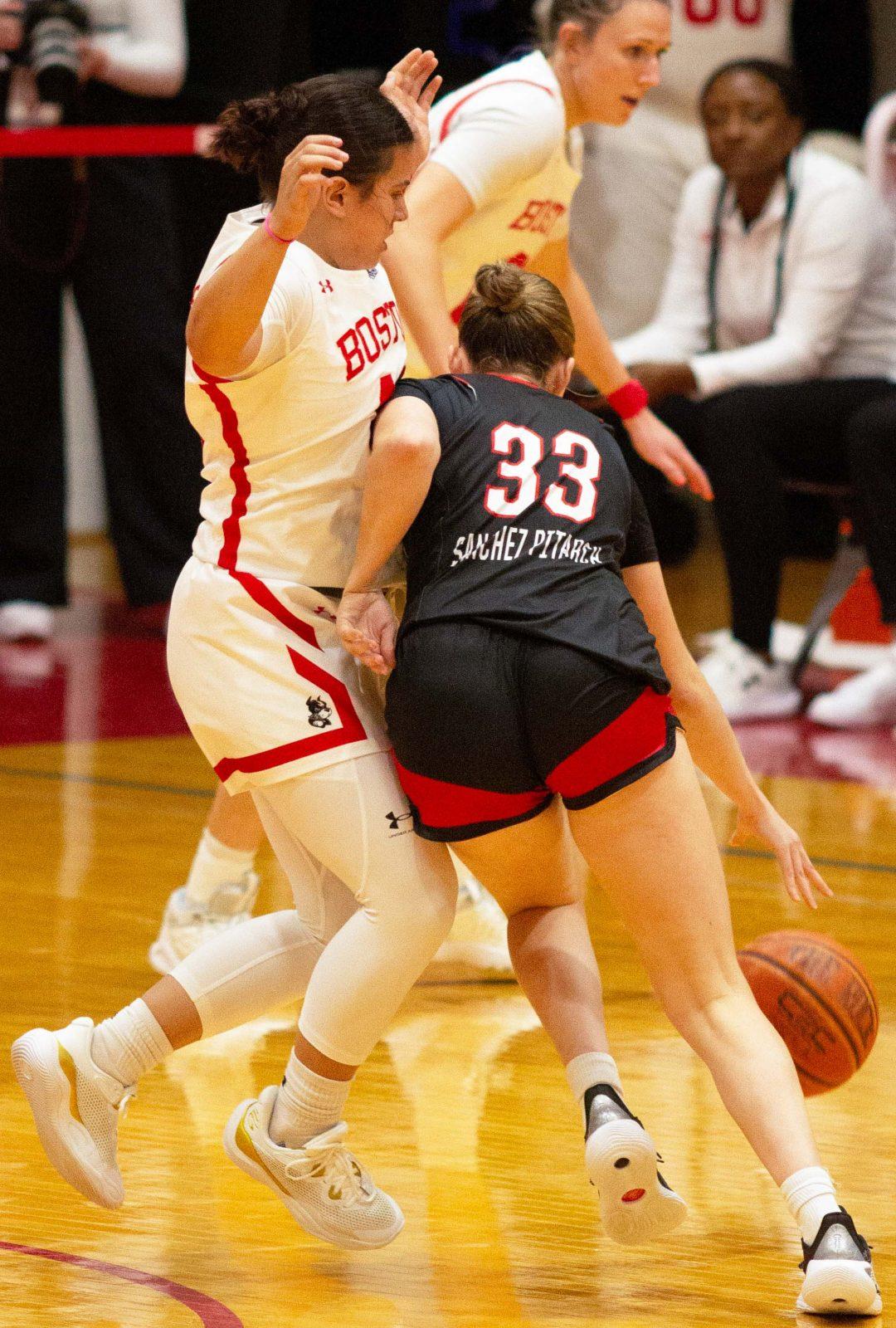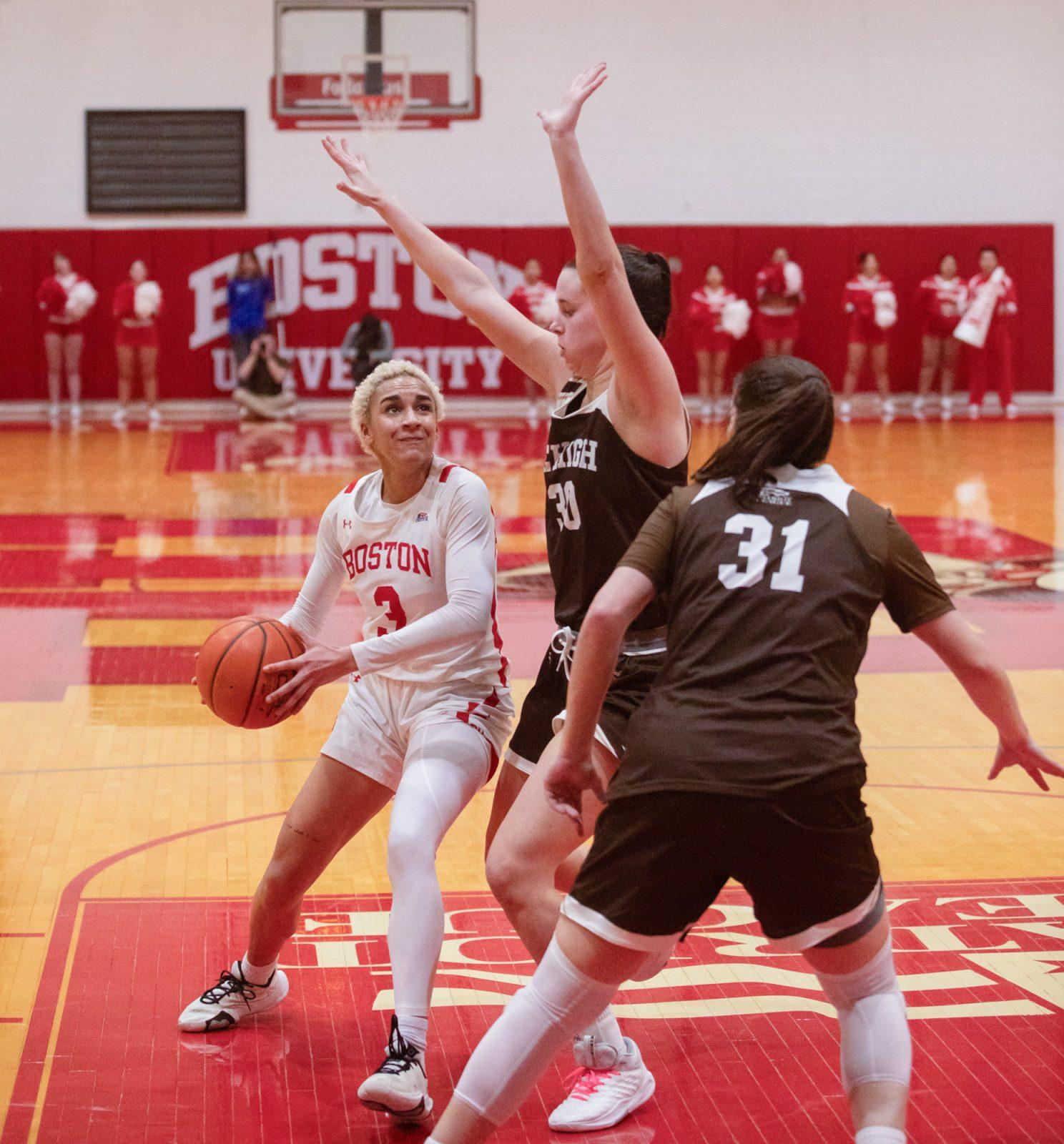Boston University basketball head coaches Joe Jones and Marisa Moseley reflected on their anti-racism work in and out of the Patriot League Anti-Racism Commission, of which they are members.
Jones has been the BU men’s basketball head coach since 2011, while Moseley joined the BU women’s basketball team as head coach in 2018. Moseley is a Terrier alum and played with the 2003 NCAA Tournament team.
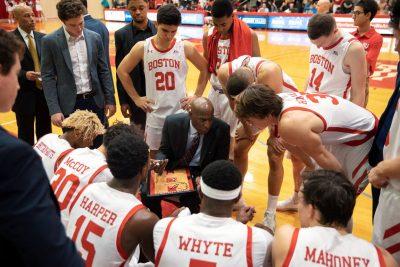
Both coaches joined the commission in July, which was formed in light of protests and marches across the United States for the Black Lives Matter movement. They continue to push for more anti-racism change across the Patriot League through discussion and education.
“The first thing we wanted to do is we wanted to make sure our players were educated,” Jones said. “How [racial inequality] has been embedded in our country for so long.”
The goal of the commission is to examine the way “systemic racism is perpetuated” and looks for long-term solutions to the problems racism causes, while continuing the Patriot League’s mission of preparing student-athletes to become societal leaders.
“This is not something that you can put a Band-Aid on to fix,” Jones wrote as a member of the commission in a Patriot League press release.
Jones credits Moseley with the creation of the commission, which has 23 Black and brown coaches from the conference involved.
“Marisa Moseley, she kind of spearheaded it,” he said. “[She] brought the idea to the Patriot League and that’s how it started.”
Jones said his work within the commission is focused on learning about hiring practices and how they work within the Patriot League.
Moseley shared similar sentiments to Jones about the perpetuation of racism in the United States. She said these issues of racism and injustices have always been around, but there has been a “societal shift” around addressing these issues.
“This isn’t new,” Moseley said, “there’s a lot of things that need to change and happen in our society.”
Moseley said she has been discussing these topics with her team in an educational, inclusive and trusting environment. Her team continues to have discussions about the news and history of Black people in the U.S.
Conversations about racism with people in her life and her organizations are where she said she has seen a lot of change, but she is skeptical of the performative activism that has come along with the fight for equality.
“I do think that there has been a shift,” Moseley said. “My concern was and continues to be: Does this peter out? Because this isn’t just a moment, it’s a movement.”
Moseley said she is proud of her involvement in the commission and believes it couldn’t have happened had these coaches not “pushed the envelope.”
“Creating conversations between individuals, not only students, but faculty and administrators and coaches at our 10 member institutions just creates a broader dialogue that we are excited to foster,” said Jennifer Heppel, commissioner of the Patriot League.
Moseley said she is a part of a subcommittee that focuses on education, professional development and hiring practices. Moseley said other conferences have improved their hiring practices and the Patriot League should utilize its resources to do the same.
“It’s important to have patches or T-shirts or things of that nature,” Moseley said. “But if we’re really talking about making systemic change, you have to actually change the system.”
She also said her own experiences with racism have opened her eyes to her commitment for social justice.
“Whether it’s anecdotal with other friends or readings,” Moseley said, “[social justice] has always been a passion of mine.”
This passion continues to push her to fight for equality and justice. Moseley said while the work is hard and long term, she will continue to do it.
“It’s been inspiring to see that we can actually affect change,” Moseley said. “It’s not an overnight thing … I’m committed to the cause.”
“Lift Every Voice and Sing,” often referred to as the Black National Anthem, was played before the BU women’s basketball game Saturday.
Moseley said this song is meaningful to Black individuals all over the country, including herself. She said it was important people learn the history and meaning of the song, as well as what it means for Black people now.
The song will continue to be played before every BU women’s basketball home game in February as a part of Black History Month.
“For me as a Black woman to be standing at a predominantly white institution coaching basketball and getting to lead a program,” Moseley said, “for me to be able to stand here and do this thing that I love is only on the shoulders of my ancestors and people who sacrificed.”

















































































































